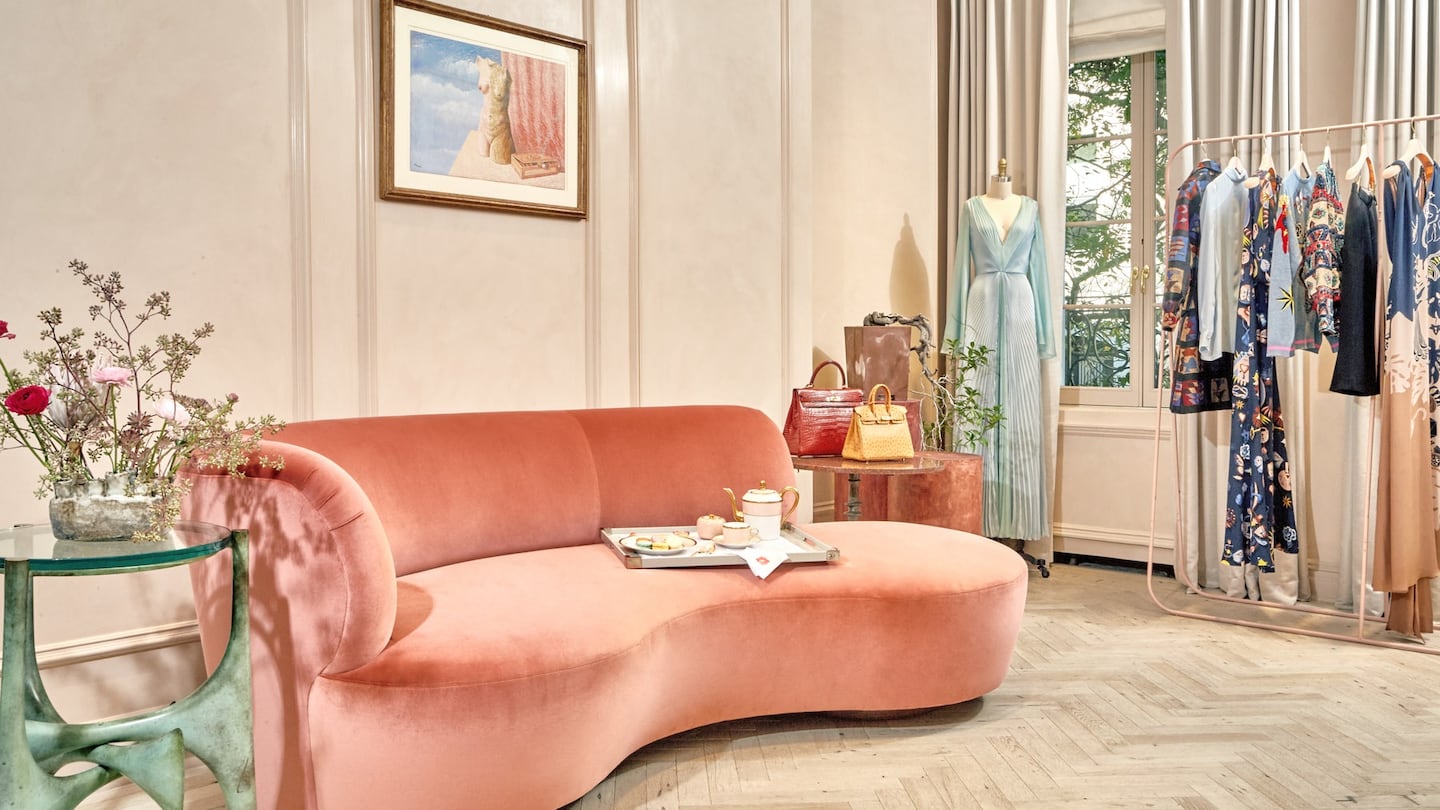
The Business of Fashion
Agenda-setting intelligence, analysis and advice for the global fashion community.

Agenda-setting intelligence, analysis and advice for the global fashion community.

LONDON, United Kingdom — In a high-rise skyscraper in Dubai, one very wealthy woman recently threw a dinner party for a few friends — and Net-a-Porter and Mr Porter president Alison Loehnis. Alongside elaborate table settings were rails filled with some of the site's most exclusive gowns, the latest salvo in the battle to capture the wallets of the global elite.
Net-a-Porter is one of several e-commerce companies vying for the same set of ultra-high-net-worth customers. Consumers spent $262 billion on personal luxury goods worldwide last year, according to Bain. But for online retailers, just 1-to-3 percent of clients can make up anywhere from 20-to-40 percent of revenue.
That's triggered an arms race between the biggest retailers in the space, including Net-a-Porter, MatchesFashion and Moda Operandi, to provide one-of-a-kind products, services and experiences. Where private shopping once meant a monthly trip to a department store, online retailers have teams of personal shoppers available to chat around the clock on WhatsApp, fly to clients' homes for last-minute couture appointments and make the buy for an entire holiday wardrobe. E-commerce sites are also opening physical spaces dedicated to personal services for their highest spending customers.

MatchesFashion event in Dubai, UAE | Source: Courtesy
ADVERTISEMENT
"How do you make sure you don't become industrial about it?" said Ulric Jerome, chief executive of Matches. "The biggest challenge is to build and operate a private shopping team at scale that still has a very personal approach."
At Net-a-Porter, a priority customer is called an EIP — short for “extremely important person.” An EIP spends an average of $64,000 annually on fashion — $18,000 at Net-a-Porter — and travels 11 times a year from cities like New York, London, Hong Kong and Dubai, according to Net-a-Porter. They might expect to have clothes flown in for a gala event or arrange for a wardrobe overhaul at their home.
EIPs receive private home appointments, invitation to industry events and front-row seats at fashion shows. Sometimes brands looking to boost online sales get in on the action. At Paris fashion week, some customers attended a private dinner hosted by Balmain's Olivier Rousteing and Loehnis.
The goal is to provide one-of-a-kind experiences, since benefits like same-day shipping have become ubiquitous.
“Product is product, and buying items becomes the basic expectation,” said Robert Burke, chief executive at advisory firm Robert Burke Associates. “Being able to have a custom item no one else has — that raises the bar.”
Personal shopping should remove the hassle out of shopping completely.
Online, these sites are continually one-upping each other with digital innovations designed to give customers a more-intimate experience.
MatchesFashion created a chatbot that makes daily recommendations, and the site's personal shoppers are available 24/7 to customers worldwide. They may adopt a casual tone, switching to Instagram or swapping screenshots or videos. The goal is to turn popular messaging services — WhatsApp in Western countries, WeChat in China and Line in Japan — into customised personal shopping apps as customers provide more data about their preferences, Jerome said.
The payoff can be huge: Net-a-Porter last year sold its most expensive single piece — a nearly $150,000 Panthère de Cartier watch — on WhatsApp.
ADVERTISEMENT
A client of 24 Sèvres said the e-commerce site, launched by LVMH last year, is her favourite place to shop online because of the recommendations her private shopper sends by text and email. The customer, a 42-year-old mother of three in London, said she enjoyed the perks, ranging from a handwritten note from 24 Sèvres chief executive Eric Goguey at Christmas to being placed first in the queue for a new Céline skirt when the brand debuted on the site in March.
“Personalisation is essential,” Goguey said. “We see personal shopping as something that should remove the hassle out of shopping completely.”
24 Sèvres is one of several sites incorporating offline locations into their high-end service. At Parisian department store Le Bon Marché, private shopping customers can have their orders delivered to the ground floor, complete with private fitting rooms and a stylist at-hand.
At Moda’s by-appointment showrooms in New York and London, its personal shoppers, or “stylists,” account for 49 percent of revenue.
"When a customer walks into one of our showrooms, the space has been curated and transformed to reflect her tastes," says Lauren Santo Domingo, one of the site's co-founders. For example, Moda might throw a party designed around a customer's taste or host a dinner with favourite designer. Moda plans to open a third showroom in Hong Kong.
MatchesFashion is set to open Carlos Place in London's Mayfair neighbourhood on September 3. The ground floor will include a café, and rotate between events and brand takeovers, with two upper floors set aside for personal shopping clients.
“It’s a strategic space for us,” Jerome said.
Net-a-Porter has hosted pop-ups around the world to present seasonal edits, but has no plans to open a permanent location.
ADVERTISEMENT
“We’re a digital business at heart, which is why one-to-one experiences happen on customer terms,” said Loehnis. “We’re not looking at a physical space and see it advantageous to be nimble and local.”
Related Articles:
[ How Personal Shopping Makes People SpendOpens in new window ]
[ A Personal Stylist for Every ShopperOpens in new window ]
[ Inside Farfetch's Store of the FutureOpens in new window ]
IWC’s chief executive says it will keep leaning into its environmental message. But the watchmaker has scrapped a flagship sustainability report, and sustainability was less of a focus overall at this year’s Watches and Wonders Geneva.
The larger-than-life Italian designer, who built a fashion empire based on his own image, died in Florence last Friday.
This week, designers, collectors and major fashion brands will flock to Milan’s design fair. Also, LVMH reports first-quarter sales.
The Italian designer, best known for vibrant animal prints and sand-blasted denim, was 83.